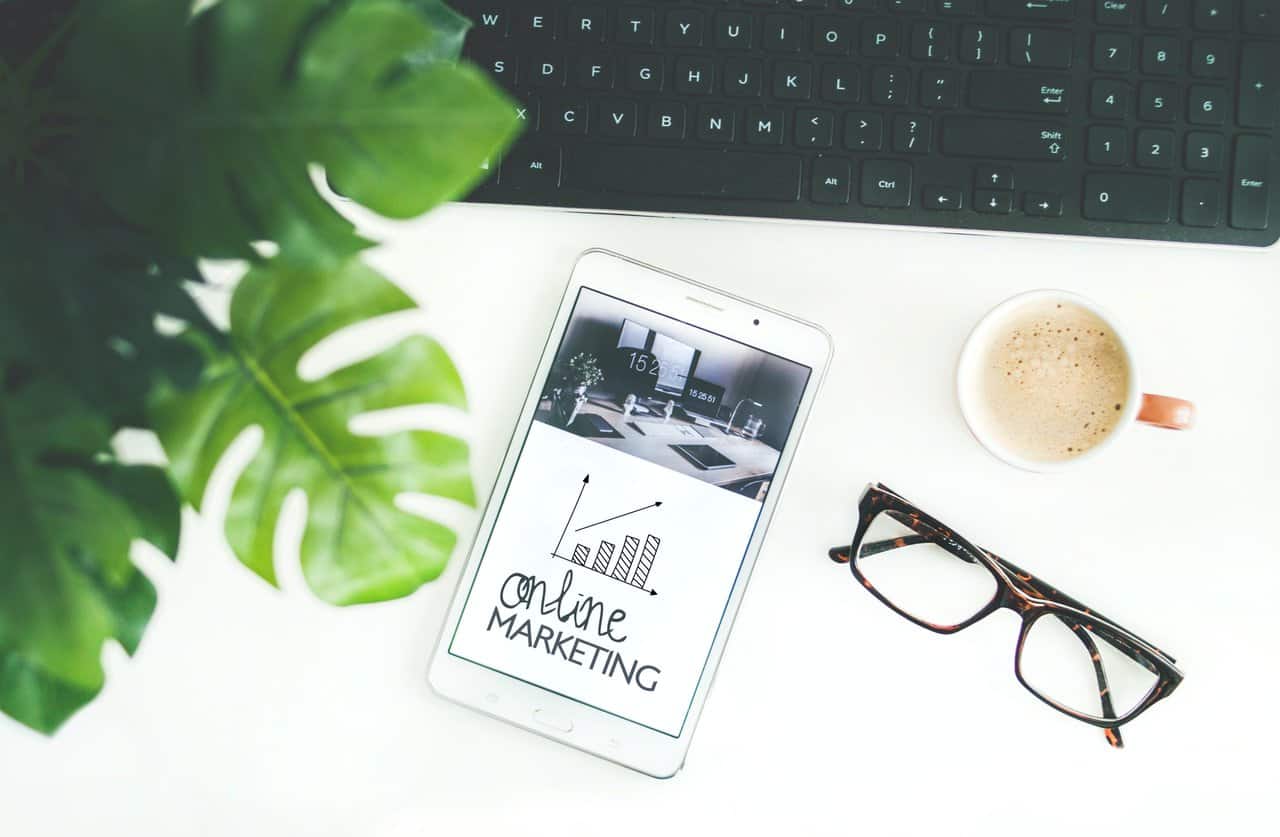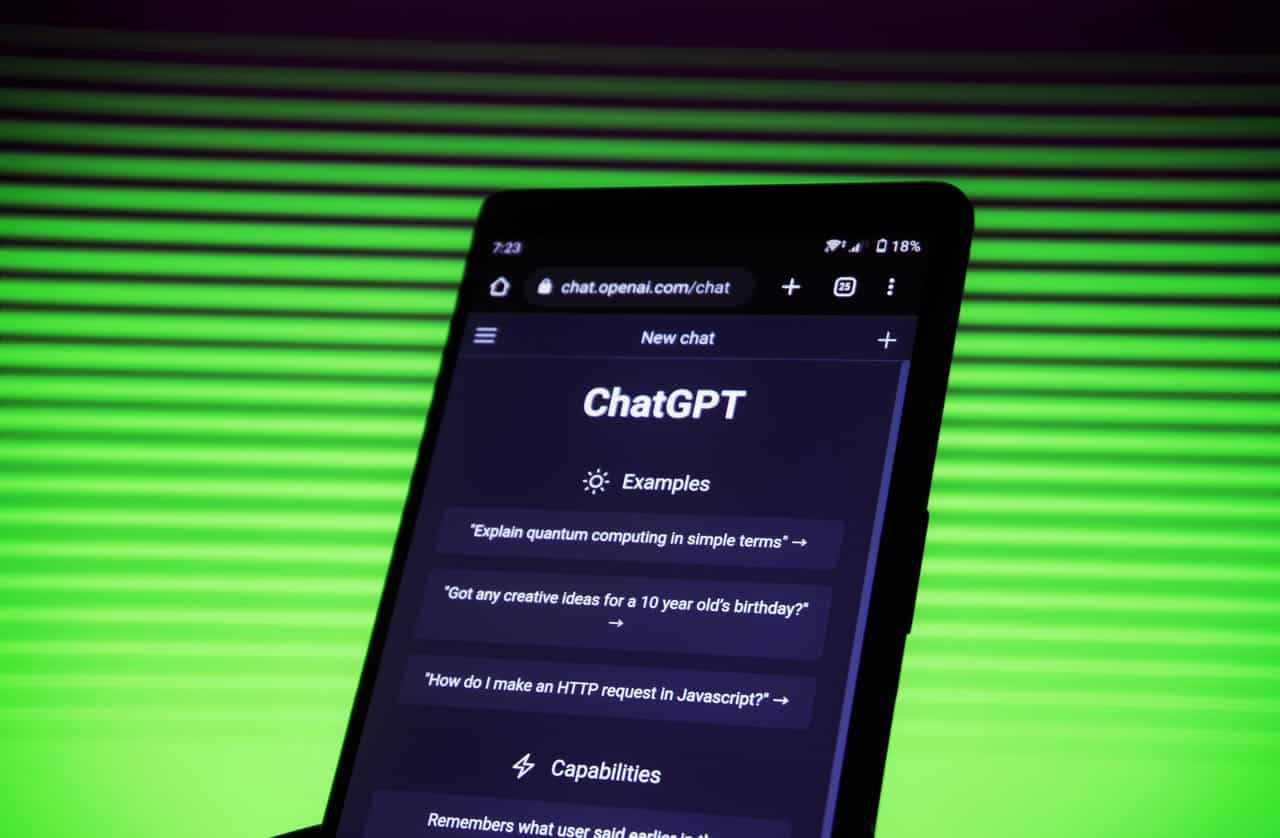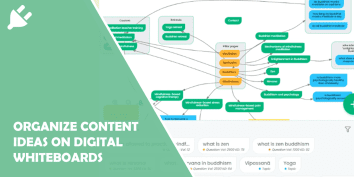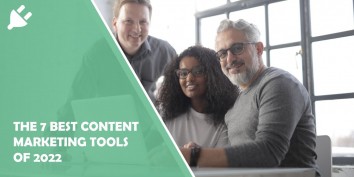Effective content marketing strategies are an excellent way for any business to succeed and keep…
Artificial intelligence has revolutionized the way we consume and create content, permeating every aspect of our lives, including marketing. With its ability to analyze vast amounts of data and mimic human behavior, AI-generated content is rapidly becoming a game-changer in the marketing world. In this article, we delve into the top types of AI-generated content that are reshaping marketing strategies. Backed by new data, enriched with real-life examples, and brimming with actionable tips, this exploration opens up a whole new horizon for marketers to tap into the potential of AI and enhance their campaigns like never before. So fasten your seatbelts as we embark on a journey through cutting-edge technologies that are rewriting the rules of content creation in marketing.
The Rise of AI-Generated Content in Marketing
The rise of AI-generated content in marketing has revolutionized the way businesses communicate with their audience. With advancements in natural language processing and machine learning, AI is now able to generate high-quality content that matches – and sometimes surpasses – human creativity. From blog articles and social media posts to press releases and product descriptions, AI-powered software can produce engaging content that resonates with consumers.
One of the key advantages of using AI-generated content is its ability to personalize messaging at scale. By analyzing data on consumer preferences, behaviors, and demographics, AI algorithms are able to tailor messages to specific customer segments. This level of personalization not only improves customer engagement but also helps businesses build stronger relationships with their target audience.
Moreover, some brands are experimenting with chatbot-powered conversations that provide instant responses and recommendations tailored to individual customers’ needs. These virtual assistants leverage AI technologies like natural language understanding (NLU) and machine learning to understand customer queries and deliver accurate responses in real-time. This level of responsiveness not only enhances the customer experience but also serves as a valuable tool for lead generation and sales conversions.
In conclusion, the rise of AI-generated content in marketing holds great promise for businesses seeking efficient ways to engage their audience. From personalized messaging to intelligent chatbots, these technological advancements offer new avenues for improving customer experience while driving sales growth. As AI continues to evolve, marketers will have even more powerful tools at their disposal, enabling them to create highly relevant content that truly resonates with consumers’ needs and aspirations.

Types of AI-Generated Content:
As the use of artificial intelligence (AI) continues to expand across various industries, including marketing, it’s important to understand the different types of AI-generated content that are shaping the future of digital advertising. One type of AI-generated content is Natural Language Generation (NLG), which involves the creation of written text that mimics human language. NLG can be used to generate product descriptions, blog posts, and social media captions with remarkable speed and accuracy.
Another significant type is Image and Video Generation, which utilizes AI algorithms to create visual content. With advancements in deep learning and computer vision technology, AI systems can now generate realistic images and videos from scratch or alter existing ones. This enables marketers to rapidly produce engaging visuals for their campaigns without relying on traditional design processes or time-consuming photo shoots.
Additionally, AI-powered Content Curation has revolutionized how marketers sift through massive amounts of information to find valuable insights for their target audience. By leveraging machine learning algorithms, these tools can analyze vast quantities of data—such as news articles, social media posts, or user-generated content—and curate personalized recommendations based on individual preferences and interests. This streamlines the content discovery process while ensuring that users receive relevant information tailored to their needs.
In summary, the increasing adoption of AI technology in marketing has unlocked a whole new realm of possibilities when it comes to generating captivating content.
1. Automated Reports and Analytics
Automated reports and analytics have revolutionized the way marketing teams track and measure their efforts. With artificial intelligence (AI) capabilities, businesses can now generate real-time, data-driven reports that provide actionable insights. This not only saves time for marketers but also ensures accuracy and consistency in reporting.
One of the key benefits of automated reporting is its ability to handle large volumes of data. AI algorithms can process vast amounts of information from various sources, such as social media platforms, website analytics tools, and email marketing software. This allows marketers to gain a comprehensive understanding of their audience’s behavior, preferences, and engagement levels. By leveraging automation, companies can uncover hidden patterns and trends that may have otherwise gone unnoticed.
Moreover, automated analytics enable marketers to measure campaign performance in granular detail. AI algorithms can analyze the effectiveness of specific marketing tactics across different channels and demographics. Marketers can identify which strategies are driving results and make data-backed decisions to optimize their campaigns further. With these insights at hand, businesses gain a competitive edge by continuously refining their marketing approach based on real-time feedback from AI-generated reports.
In summary, automated reports and analytics empower marketers with accurate insights derived from extensive data analysis. They save time while ensuring precision through AI capabilities that handle complex data sets effortlessly. By leveraging these technologies effectively, businesses can drive improved campaign performance through informed decision-making based on actionable intelligence provided by automated reports.
2. Personalized Email Campaigns
One type of AI-generated content in marketing that has proven to be highly effective is personalized email campaigns. By leveraging artificial intelligence, marketers are able to segment their audience and send targeted emails that are tailored to each individual’s interests, preferences, and behaviors.
Personalization not only helps to grab the attention of recipients but also improves engagement rates and conversion rates. According to a study by Campaign Monitor, personalized email campaigns can generate up to six times higher transaction rates compared to generic email blasts.
AI can analyze customer data such as past purchases, browsing history, and demographic information to create highly customized emails that speak directly to the recipient. This level of personalization builds trust and strengthens the relationship between the brand and the consumer, leading to increased loyalty and repeat business.
To take personalization even further, AI can also dynamically update email content based on real-time data. For example, if a customer abandons their shopping cart on an e-commerce site, AI can automatically send a follow-up email with personalized product recommendations or discounts tailored specifically for them.
In conclusion, personalized email campaigns powered by AI are revolutionizing marketing strategies by allowing brands to connect with consumers on an individual level. By delivering relevant content directly into subscribers’ inboxes, marketers can achieve higher engagement rates and drive conversions. The ability of AI algorithms to analyze vast amounts of customer data enables marketers to create hyper-personalized emails that make recipients feel understood and valued.
3. Chatbots for Customer Support
Chatbots have revolutionized the way businesses handle customer support. With advancements in AI technology, chatbots can now provide instant responses to customer inquiries, reducing response times and improving overall customer satisfaction. One major advantage of using chatbots for customer support is their ability to handle multiple conversations simultaneously. Unlike human agents who can only handle one conversation at a time, chatbots have the capability to engage with multiple customers simultaneously, resulting in faster response times and improved efficiency.
In addition to responsiveness, chatbots also offer a personalized experience for customers. Through machine learning algorithms and natural language processing capabilities, chatbots can analyze past interactions and access relevant information about the customer’s history with the brand. This enables them to provide tailored recommendations or solutions based on the individual’s preferences and needs.
Moreover, implementing chatbots for customer support allows businesses to be available 24/7. Customers no longer need to wait until regular business hours or endure long hold times on calls; instead, they can get immediate assistance through a quick conversation with a chatbot at any time of day or night.
By leveraging these advantages of chatbot technology in customer support, businesses can enhance their overall customer experience while streamlining their support processes. The use of AI-generated content like chatbots not only saves time but also improves efficiency by handling multiple conversations simultaneously while providing personalized recommendations – truly revolutionizing traditional approaches to customer support.
4. Dynamic Website Content
Dynamic website content is a game-changer in the world of marketing. It allows businesses to create personalized experiences for every visitor, tailoring the content to their interests and needs. By utilizing artificial intelligence, dynamic website content can automatically change and update based on real-time data, ensuring that each visitor sees the most relevant and engaging content.
One of the key benefits of dynamic website content is its ability to improve conversion rates. By serving personalized content, businesses can create a more targeted experience that resonates with their audience. For example, an e-commerce site can showcase products related to a customer’s previous purchases or browsing history, increasing the chances of making a sale.
Furthermore, dynamic website content allows businesses to stay competitive in today’s fast-paced digital landscape. With AI-generated recommendations or automated email campaigns triggered by user behavior, companies can provide customers with timely information and offers tailored specifically to their needs and preferences. This not only enhances user experience but also strengthens brand loyalty.
DragGAN AI Tool, an advanced and innovative photo editing tool, uses AI to transform and modify images with ease. Developed by the Max Planck Institute, this user-friendly tool allows users to make realistic alterations to photographs by simply dragging and placing points interactively.
In conclusion, dynamic website content powered by AI technology brings immense possibilities for marketers. The ability to deliver personalized experiences at scale has never been easier thanks to this innovative solution. By leveraging real-time data and automation capabilities, businesses can engage their audience effectively while driving conversions and cultivating long-term relationships with customers.
5. AI-Powered Copywriting and Content Creation
AI-powered copywriting and content creation is revolutionizing the way businesses communicate with their audience. With the advancements in natural language processing and machine learning, AI can now generate high-quality content that is indistinguishable from human-written pieces. This technology not only saves time and resources for companies, but it also ensures consistent messaging across multiple platforms.
One of the key benefits of AI-generated copywriting is its ability to personalize content at scale. By analyzing vast amounts of data on customer preferences and behavior, AI algorithms can tailor messages to specific target audiences, increasing engagement and conversion rates. Furthermore, AI can generate content that is optimized for different channels, such as social media posts or email newsletters, ensuring maximum impact for each platform.
Another exciting aspect of AI-powered content creation is the ability to experiment and innovate with new storytelling formats. With access to a wide range of data sources and patterns, AI algorithms can develop unique narratives that captivate audiences in ways never seen before. From interactive chatbots that engage users through conversations to video scripts generated based on user preferences, these innovative approaches push the boundaries of traditional marketing strategies.
In conclusion, AI-powered copywriting and content creation have become invaluable tools in modern marketing efforts. Businesses can now leverage this technology to create personalized and engaging content at scale while also exploring new storytelling formats that resonate with their target audience like never before. As we continue to witness advancements in this field, it’s clear that embracing AI-generated content will be crucial for staying competitive in an increasingly digital world.

Examples of Successful Implementation in Marketing
One notable example of successful implementation in marketing is the use of AI-generated content for personalized recommendations. Companies such as Amazon and Netflix have long been leveraging AI algorithms to analyze user behavior and preferences, allowing them to deliver tailored product suggestions and movie recommendations to their customers. This not only enhances the user experience but also improves conversion rates as customers are more likely to make a purchase or watch a recommended movie based on their unique interests.
Another powerful application of AI-generated content in marketing can be seen in chatbots. Brands like Sephora and Starbucks have embraced this technology to provide instant customer support and engage with their audience in a more personalized way. By using natural language processing capabilities, these chatbots can understand customer queries, answer frequently asked questions, recommend products or services, and even resolve common issues without any human intervention. This not only saves time for both customers and businesses but also frees up personnel to handle more complex tasks while ensuring consistent service quality across different channels.
In these examples, it’s clear that successful implementation of AI-generated content has allowed companies to enhance customer experiences, improve efficiency, drive sales conversions, and build stronger relationships with their audience. These success stories demonstrate the potential of AI-powered solutions for marketing purposes – from delivering targeted recommendations to providing round-the-clock support – paving the way for further innovation and advancement in the field of digital marketing.
Tips for Effective Use of AI-Generated Content
When it comes to using AI-generated content effectively, there are a few key tips to keep in mind. First and foremost, it’s crucial to remember that AI is a tool, not a substitute for human creativity and intuition. While AI can certainly automate certain aspects of content creation, it’s important for marketers to maintain creative control and ensure that the final product aligns with their brand’s voice and objectives.
Another tip for effective use of AI-generated content is to leverage personalization. By using data-driven insights and algorithms, AI can help tailor content to specific audience segments or individual customers. This level of personalization not only enhances engagement but also boosts conversion rates by delivering more relevant messaging.
Lastly, it’s important to continually evaluate the performance of your AI-generated content. Monitor metrics such as click-through rates, engagement rates, and conversions to assess how well the produced content resonates with your audience. By analyzing this data and making necessary adjustments along the way, you can refine your AI-driven strategy over time and maximize its impact on marketing efforts.

Potential Challenges and Limitations to Consider
While AI-generated content has revolutionized the marketing landscape, it is essential to acknowledge its potential challenges and limitations. One major concern is the lack of human touch and emotional connection in AI-generated content. While these systems can produce high-quality text quickly, they often struggle to capture the nuances, creativity, and empathetic qualities that humans bring to their work.
Another significant challenge is the risk of bias in AI-generated content. Machine learning algorithms are trained on vast amounts of data collected from various sources, which may contain inherent biases. These biases can manifest themselves in the form of stereotypes or discriminatory language in the generated content, compromising brand reputation and alienating certain segments of the audience.
Moreover, ensuring legal compliance poses another limitation for AI-generated content. The automated nature of this technology makes it difficult to keep up with ever-evolving regulations regarding copyright infringement, privacy laws, and other legal aspects related to content creation. Brands must be vigilant about regularly updating their AI systems with current information and closely monitoring their output to stay within legal boundaries.
Conclusion: Harnessing the Power of AI in Marketing
As we reach the conclusion of this article, it becomes clear that harnessing the power of AI in marketing is not just a trend but a necessity in the rapidly evolving digital landscape. With its ability to analyze vast amounts of data, create personalized content, and automate repetitive tasks, AI is revolutionizing marketing strategies across industries.
One significant benefit of using AI in marketing is its potential to enhance customer experiences. By analyzing user behavior and preferences, algorithms can tailor content and recommendations to each individual’s needs. This personalized approach not only helps build stronger connections with customers but also increases engagement and conversion rates. Furthermore, AI-powered chatbots provide instant assistance for customers by answering their queries promptly and accurately.
Another aspect where AI shines in marketing is insightful data analysis. With the ability to process massive amounts of data quickly, artificial intelligence can identify patterns, trends, and insights that might have been missed by human analysts. This allows marketers to make well-informed decisions based on real-time data rather than relying solely on intuition. Moreover, AI-generated analytics reports provide comprehensive insights into campaign performance metrics and audience demographics so that marketers can fine-tune their strategies accordingly.
In conclusion, harnessing the power of AI in marketing brings numerous advantages such as personalized experiences for customers and detailed data analysis for marketers. As technology continues to advance at an unprecedented pace, incorporating AI into marketing strategies will become increasingly crucial for businesses aiming to stay competitive in today’s fast-paced digital landscape.
![The Top Types of AI-Generated Content in Marketing [New Data, Examples & Tips] The Top Types of AI-Generated Content in Marketing [New Data, Examples & Tips]](https://tidyrepo.com/wp-content/uploads/2023/08/tidyrepo-featured-400x200.jpg)





